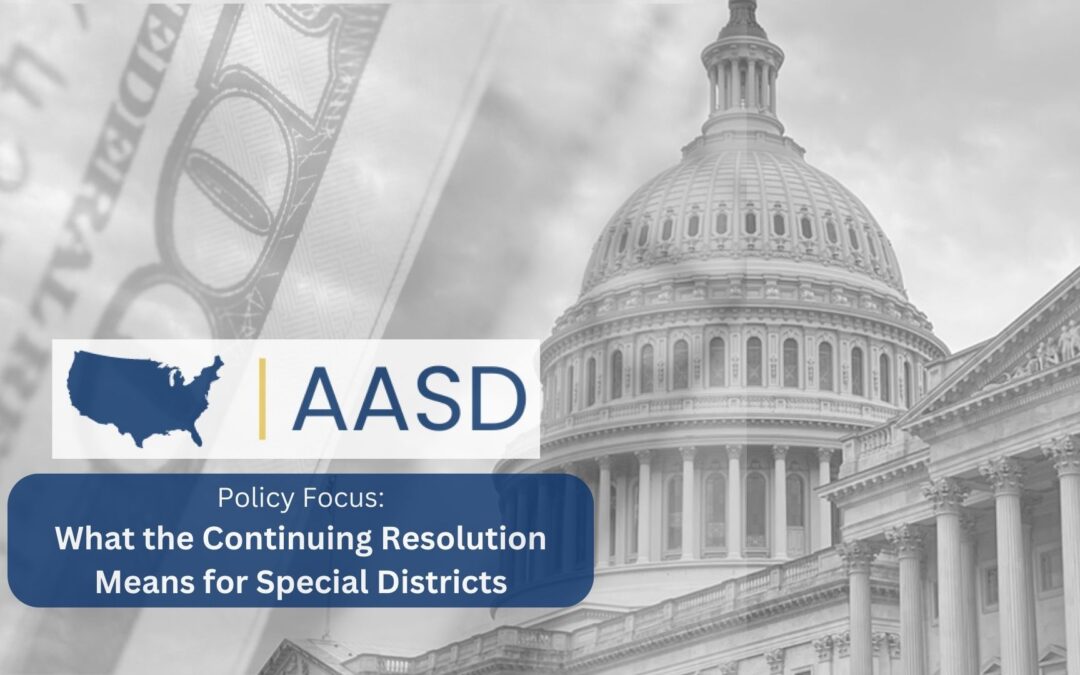In what has become an annual tradition, Congress passed legislation to keep the federal government open past the fiscal year-end deadline on September 30, pushing action until December.
The continuing resolution (CR) – H.R. 9747 (Cole), the 2025 Continuing Appropriations and Extensions Act, flatly extends funding for the vast majority of federal programs at FY24 levels through December 20, 2024. It also ensures funding for mandatory and entitlement spending – largely noncontroversial – and a handful of select programs.
Notes of general interest to special districts included in the CR:
- Disaster Assistance. The CR ensures the federal government can meet obligations in response to disasters. This is a common provision in CRs, but is important for special districts grappling, or anticipating to be impacted, with a natural disaster between now and December… such as Hurricane Helene.
- National Flood Insurance Program (NFIP). The NFIP’s reauthorization is commonly kicked down the road. This CR is no different, making it the 32nd NFIP extension since 2017. The program now expires with funding on December 20.
- Good Neighbor Authority for Mitigation. Also extended is the U.S. Forest Service and Bureau of Land Management’s authority to enter into agreements with state, local, and tribal governments for forest, rangeland, and watershed restoration work on the federal land. This policy is known as the “Good Neighbor Authority,” from which $12 million was sourced in FY24 for conservation projects across the West.
- Wildland Fire Management. The CR also ensures the U.S. Forest Service can respond and manage wildfires through December.
Congress’ extension of the Good Neighbor Authority and ensuring wildfire obligations are met in the CR is significant, because the bill does not include an extension of the 2018 Farm Bill. Last year, Farm Bill programming hit a similar hitch when authorization lapsed on October 1 until Congress enacted the fiscal year’s extension on November 19, which runs out on Tuesday, October 1, 2024.
The bill passed the House on Wednesday, September 25, 341-82, and the Senate rapidly followed suite that evening, 78-18. President Biden signed the bill on September 26.
It was the second attempt at passing a CR, this time passing in an anticlimactic fashion compared to the House of Representative’s failed first attempt at passage last week. Then, House Speaker Mike Johnson, R-La., teed up a CR with citizen-verified voting provisions, among others, that lacked support of most House Democrats and 14 House Republicans. Senate Majority Leader Chuck Schumer, D-N.Y., declared the former bill dead on arrival anyway.
All legislation that has been introduced since January 3, 2023, and do not pass by the end of this year will die with the end of the 118th Congress. This means Congress has little time to pass big-ticket legislation – not just the Farm Bill, but also the Water Resources Development Act and the National Defense Authorization Act. The situation is also tightening the squeeze to pass the much-anticipated Special District Grant Accessibility Act.
Questions? Contact cole@americasdistricts.org.

